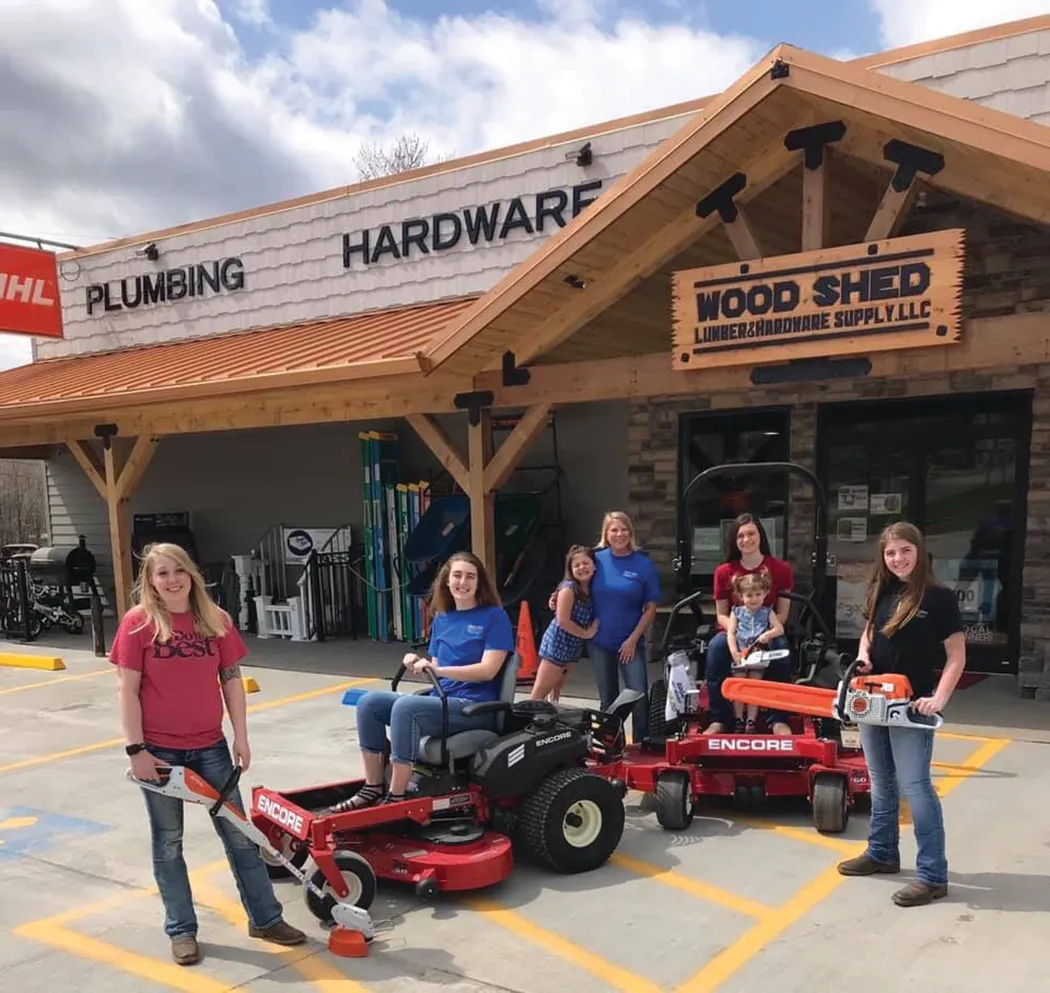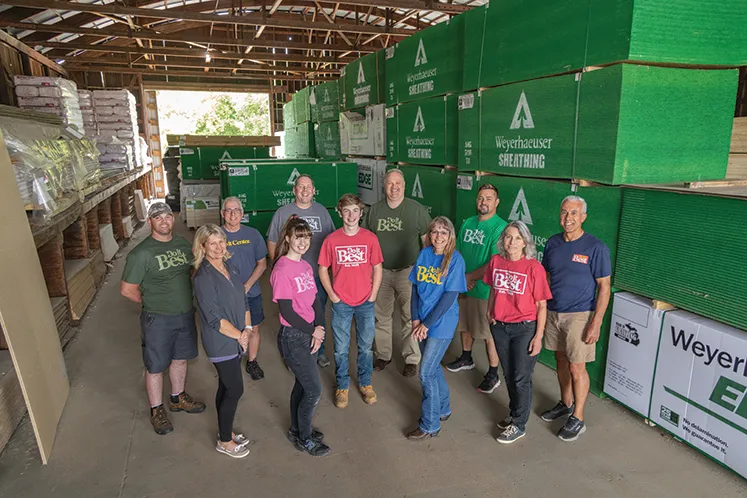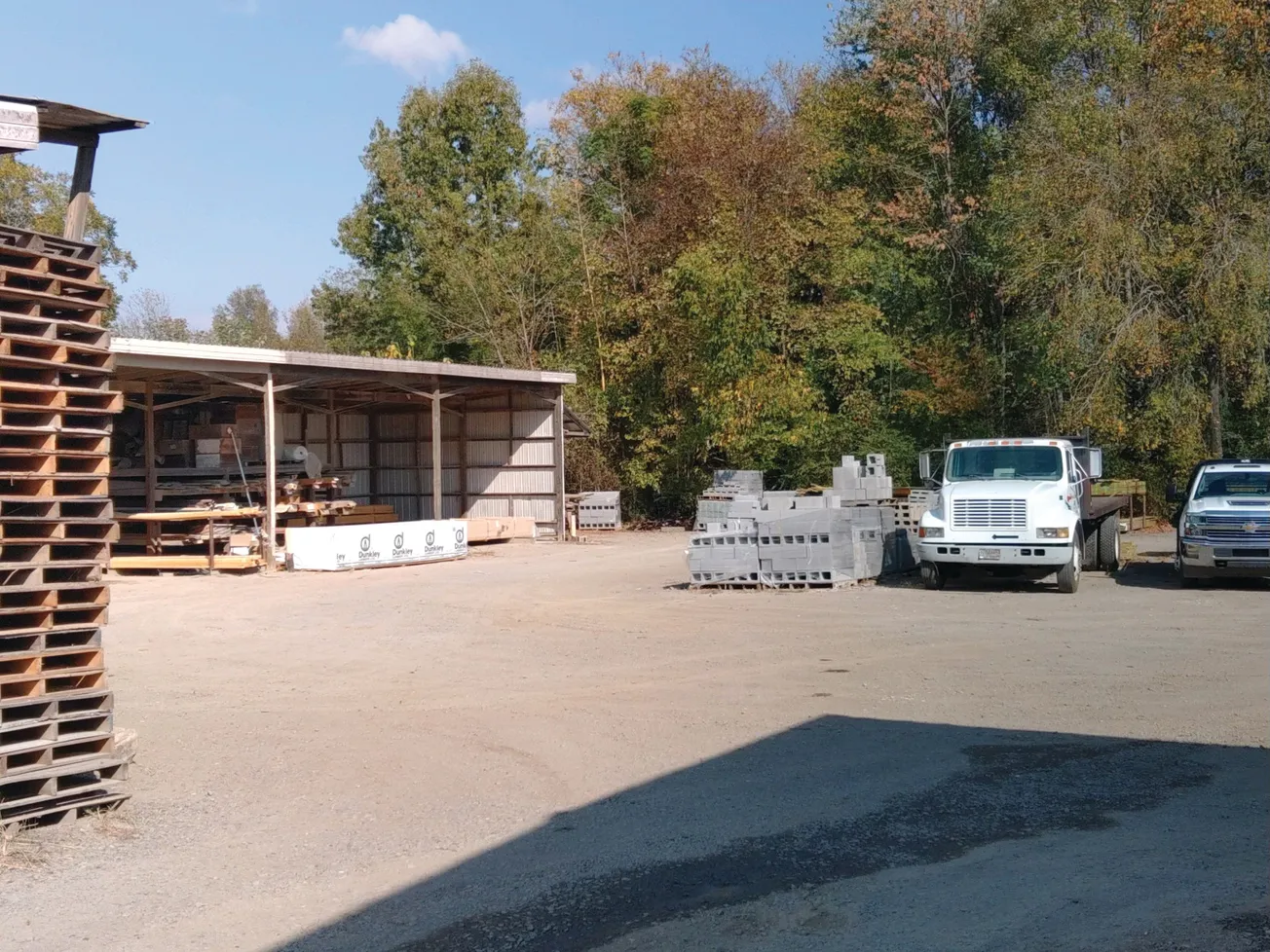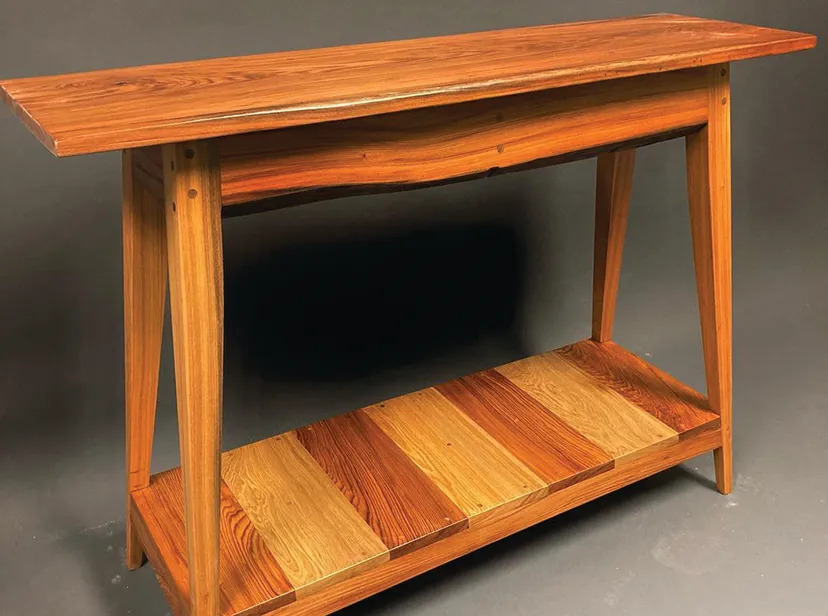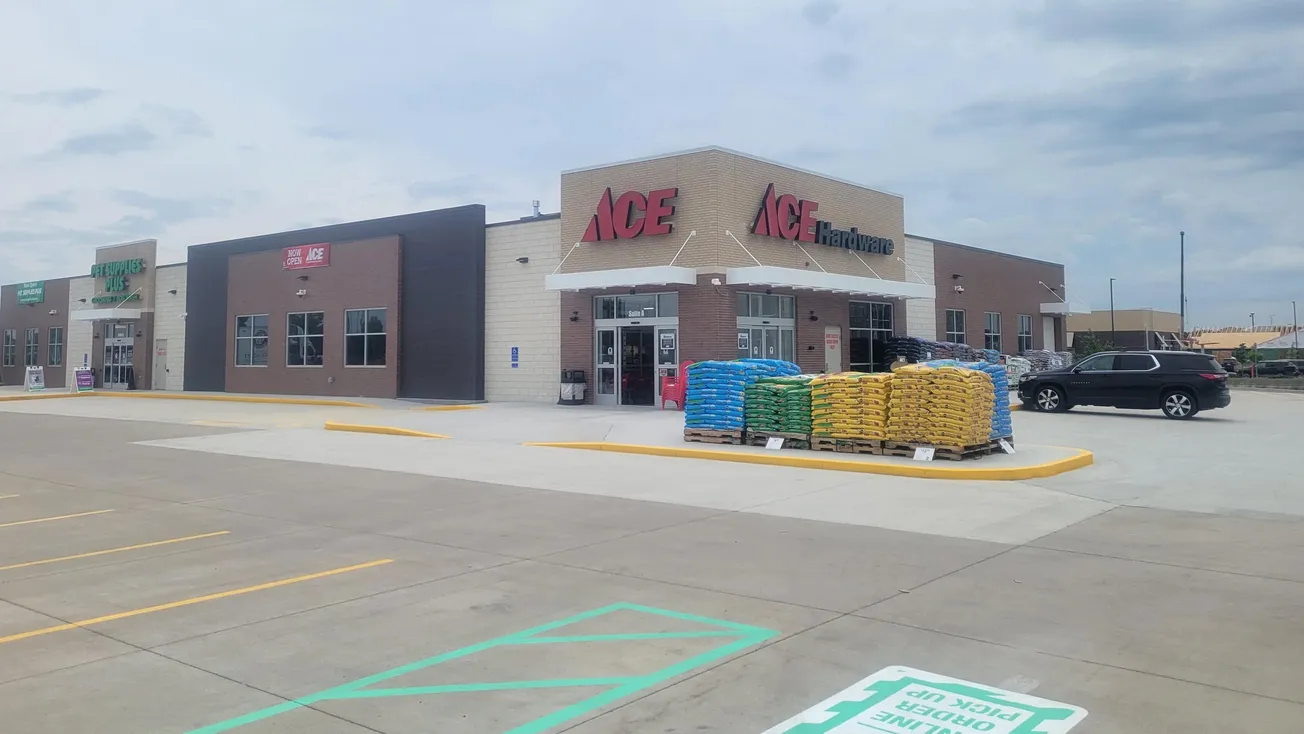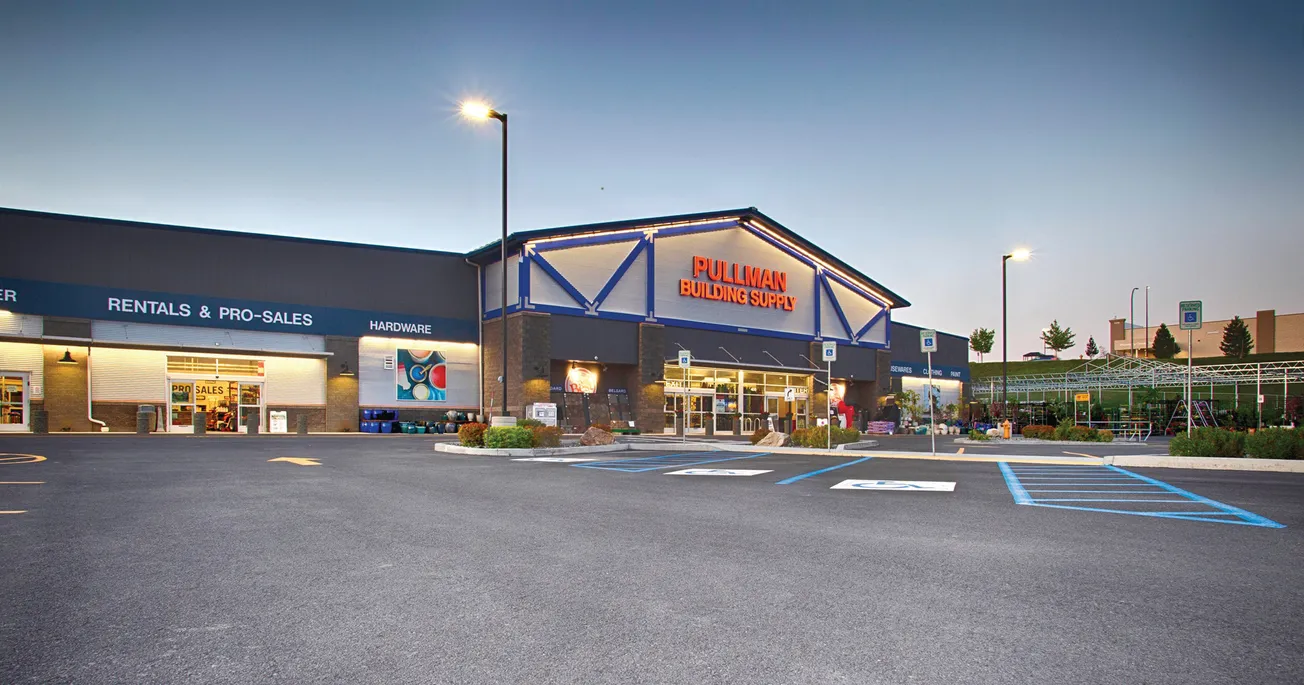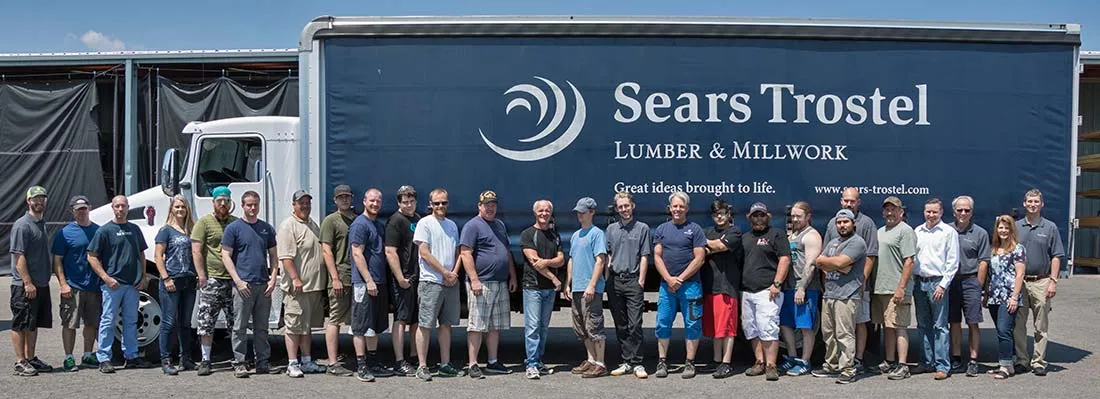Table of Contents
Despite a clever disguise as owner of Wood Shed Lumber & Hardware Supply, Sharona Eiserer is really Wonder Woman. Read on and you’ll see how her super power (a.k.a. a healthy mix of guts and good judgment) helped her transform a dozing 76-year-old family-owned outfit whose owner was ready to retire into an enterprise that has since doubled sales and is aiming even higher.
Wood Shed is located in Carrollton, Mo.—an ag-based town so tiny (under 4,000) it doesn’t even merit a pinpoint on my map. Sharona grew up here, married Cecil Eiserer, the owner of a local construction company, and—in 2016, six months pregnant with her third child (they’re now 12, 8 and 2) bought the under-performing yard “because they were ready to shut the doors if they couldn’t find a local buyer, and I hated to just let it go. It had potential, and the price was pretty good, but it needed investments in the building materials and hardware inventory. I decided, ‘Let’s just do it!’”
“Local contractors were nervous about us at first (since my husband also ran a construction company), but to ease their minds, I let them know that I wasn’t trying to get all the business and put them out of work. ‘We’ll never bid against our customers,’ we told them. ‘There’s something for all of us.’”
Still, some of them chose to shop in Chillicothe, a hike down the highway, which boasted a big box. So she laid out her message: “You used to have to drive to get what you needed. Now, you can spend that time with your kids, spend time with your family, instead of behind the windshield. Shop where you grew up!”
“I maintained I’d help them grow their business by carrying more products here, expanding the SKUs—and reliably, too: a delivery truck in every Tuesday, to better serve them in a timely manner.” And yes, that delivery truck showed up right on schedule as we spoke—despite, just before our chat, a dam on the nearby Missouri River had broken, making the drive to Wood Shed dicey. “One of our competitors is suggesting to his customers, ‘I wouldn’t go over there.’ But the truck came through,” she reports.
Wood Shed’s contractors have grown loyal. And today the walk-in trade is growing, too, thanks to more attention to the town’s needs. She’s added housewares and lawn & garden to the mix, as well as rentals, a popular niche. She expanded the paint department and initiated a drive-thru yard. Today Wood Shed has become the town’s prime place to shop (“a drastic change”).
“When I first bought the company, I didn’t have any idea what would happen. I looked at the product mix the store was carrying and had to wonder why, but I trusted our co-op’s recommendations, and it paid off. Still, I wanted to add more SKUs, but wondered how I’d find room to fit them in. Because you have to keep your offerings fresh.”
The solution? Build a brand-new store. It opened in January, replacing a building of 2,000 sq. ft. that was “long and skinny and not efficient. Plus, it had a lot of outdated outbuildings. When we bought it, it had a staff of three. Now we have 13 employees, besides family.” (Her dad checks in nearly every day; her kids have been conscripted, too.)
“I’d offered jobs to those former employees, but no takers. And I experienced a lot of turnover at first; people didn’t realize the work was heavy, packing and loading. Nowadays, the staff ranges from under 16 to over 60 in age. To find people, I picked up the phone and contacted folks I knew: ‘What are you up to? Want to help us out?’
“I also got some walk-ins, attracted because the building was new—had quality and appeal. ‘I just want to be part of it’, they’d tell me. What I looked for was, did they really want the job, or just a paycheck? I wanted people with energy. I brought a lot of energy, intensity to it, myself. I ran through the store if I had to, to help a customer. I was a role model.
“As for formal training, you think, ‘common sense.’ But it’s not. So we searched for a training program, but they seemed outdated. Plus, am I going to sit my people down to watch a PowerPoint when I’ve got customers waiting?”
Not gonna happen. Instead, she teaches, “Stay happy and friendly and smile. At staff meetings, we role-play through situations that might not have been handled the best way. We go back and rethink them. And we also all learn from each other. Two older gentlemen help others learn patience with older customers, and our younger employees gain from this. It’s anyone—15, 16, 40: You learn something every day, from customer service and product knowledge to programs on the computers,” Sharona instructs.
Customers now drive her way from Chillicothe, 30 miles north, Sharona knows, “because I always welcome folks and ask them where they’re from. I have a lot of paperwork to do in my office—I worked late-late last night—but I need, and like, to be on the floor.”
To attract new those customers, Wood Shed employs print circulars. And she utilizes spokesmen. But the company’s spokesmen aren’t men at all: They’re Sharona’s kids. “They’re on our radio ads and their photos are on our billboards. (They’re cuter than my husband and I,” she laughs.) “At our grand opening, the radio station let us play the commercial in our store. The message was, ‘This place is run by family, not a big box.’”
Sharona is trying her best to educate her builder-customers as well. “The most frustrating thing was to try to teach them to shop local. ‘To choose to shop in town is to give back to the community that made you successful,’ I tell them. That used to be hard; now, we’ve supplied two or three homes. I lead by example. For three years now, I’ve been saying, ‘I could go out of town, but I want to shop with you.’
“I volunteer at school, reading to kids, and I host the third grade on a tour here. If you start them young,” she believes, “they’ll feel part of Wood Shed. If you wait till they’re adults, they may shop somewhere else. The kids ask their parents to shop here, and when they come in, they say, ‘I know you! You read to our class!’ And who doesn’t like to recognize people?”
New store, new customers. “After our January opening, things really kicked in; before, it had been frustrating. People keep telling me, ‘Balance how you grow,’ but business has been so much better. I love the store’s design. I live and breathe and touch it.”
Sales have doubled, from $900,000 to $1.5 million, “and we’ll see $2 million this year,” Sharona is confident. “Business in town had been fed up [before we took over], but we won them back. We added a rewards program that took a while to get folks on board, but now they’re bent out of shape if they don’t get a coupon. It builds return customers, gives them an incentive.
“I went into all this blind,” she’s up-front in admitting. “I increased inventory dramatically—and then did it again, when we built the new store. It was scary, the cash flow. I was told, ‘You’re getting too big too fast,’ but I had no choice. In the old store, you couldn’t walk the narrow aisles or stairs if you needed a wheelchair. Women were intimidated to come in. So I added a UPS drop-off to lure them. I added rentals. Sno-cones. A popcorn machine. Tables and chairs.
“At the grand opening we dressed an employee as Owens Corning’s Pink Panther. We invited a woodcarving artist, and donated his work to the YMCA to auction off as a fund-raiser—giving back to the community.
“We recently added a Lawn & Garden department when a former nursery went out of business. And we took down the old outbuildings that were an eyesore. The community deserves a facelift,” Sharona insists. “We’ll do our part. We’ll offer them more.”
Speaking of more: “Yes,” she answers a reporter’s final question, “I hope to grow by launching another store. If somebody believes in us enough to give us a phone call, we take a look. There’ll be more Wood Sheds in the future.” And, the way it looks, three kids growing up to fill the slots.

